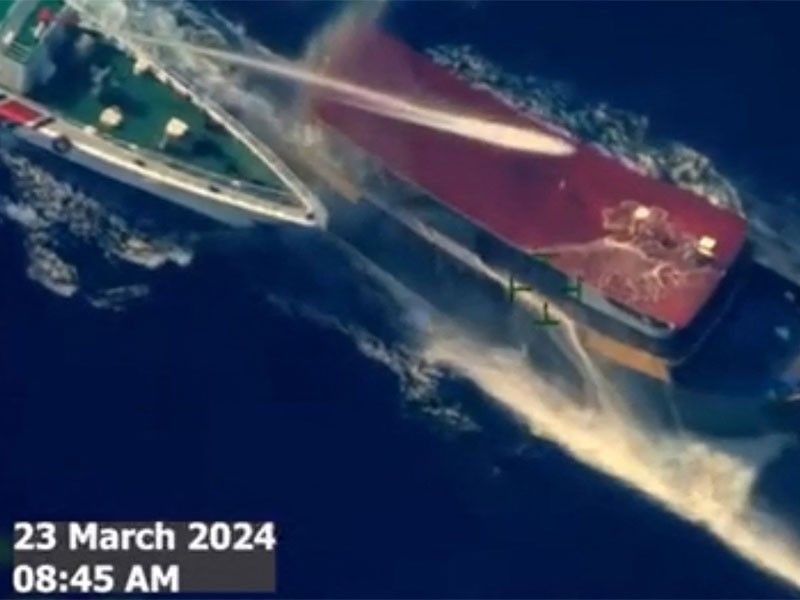Commendable acts of bravery to defend the Philippines’ national security

As the Indo-Pacific emerges as the primary theater for geopolitical activity, the region is confronted by asymmetric security challenges, particularly in the maritime domain.
This includes an upsurge of gray zone activities performed by aggressive and coercive actors to assert their power and influence by circumventing international law.
Gray zone activities, which stand below the threshold of conflict, include illegal island building and swarming of vessels.
In the case of the Philippines, the West Philippine Sea has been a breeding ground for gray zone tactics. These tactics performed by Chinese Coast Guard vessels and militias threaten to disrupt the rules-based order.
As part of efforts to protect and defend the country from foreign aggressors, the West Philippine Sea remains at the core of the foreign and security policies of the country. Since the beginning of the current administration, the Philippines has taken a proactive stance on the assertion of its national sovereignty, territorial integrity, and economic rights in the area.
The Philippines continues its pursuit of an assertive transparency strategy to increase awareness and gain public support on incidents in the maritime domain.
The publication of images and videos and the conduct of joint press briefings serve to combat false claims and narratives. As the Philippines strengthens its implementation of this strategy, however, there is a marked, unprecedented regularity and intensity of Chinese aggression as well.
For instance, the firing of water cannons by Chinese Coast Guard vessels has become a common practice to disrupt routine rotation and resupply missions of the Philippines to BRP Sierra Madre in Ayungin Shoal. Shadowing of vessels and performing dangerous maneuvers have also been a regular occurrence in the region.
These activities not only blatantly disregard well-established international laws but also undermine the Philippines’ rights, endanger the lives of Filipinos at sea, jeopardize the livelihood of Filipino fisherfolk, and cause severe damage to the marine environment.
Last month, Chinese vessels once again attempted to restrict the passage of Filipino vessels in the West Philippine Sea. Specifically, Chinese Coast Guard vessels blasted water cannons against Unaizah May 4, a civilian vessel.
It was contracted by the government to deliver supplies to troops stationed in BRP Sierra Madre. The wooden supply boat sustained significant damage after being exposed to relentless blasting of water cannons.
The National Security Council announced that four members of the Philippine Navy were injured as a result of the incident. The blasting of water cannons shattered the windshield of the civilian vessel, thereby injuring its passengers.
This prompted President Ferdinand Marcos Jr. to remark that while the Philippines does not seek conflict with any nation, “we will not be cowed into silence, submission or subservience.” He announced that the Philippines will not yield in light of aggressive incidents in the West Philippine Sea.
Like-minded partners such as the United States and Japan among others also expressed grave concern over the incident and reiterated support for the Philippines.
These irresponsible and unprovoked acts of aggression demand to be called out. Perpetrators must be held accountable for their actions. Necessary measures must be implemented to ensure that incidents such as this are dealt with diplomatically and within the bounds of obligations under international law.
Despite the dangers accompanied by activities aimed at securing the West Philippine Sea, Manila remains undeterred. The government remains unfazed, frontliners in the area remain undaunted, and the resolve of the Filipino nation prevails.
As we celebrate the Day of Valor next week, let us honor the heroism and bravery of Filipinos. This includes both those in active service and veterans alike. The determination of our people, both civilian and uniformed, to fight for the country must be exemplified and held in high regard.
The Stratbase ADR Institute commends our frontliners in the West Philippine Sea for their bravery to defend what is ours. This includes our Filipino fisherfolk, Philippine Coast Guard, Philippine Navy, Armed Forces of the Philippines, and our defense institution for standing their ground amid gray zone activities and harassment of a neighbor with an expansionist dream.
The task of serving, protecting, and defending the country is no easy feat but certainly a purposeful one.
**
As the country shifts its posturing from internal to external defense, let us not forget those who paved the path to secure our internal security. This includes the likes of Col. Segundo Bolo (Ret) of the Philippine Army. Col. Bolo (Ret) successfully rescued eight of his companions and Diocese of Ipil, Zamboanga Sibugay Bishop Federico Escaler from the hands of the Moro National Liberation Front “Lost Command” under Kumander Awalon without any casualties in 1985.
The gallantry of Filipinos who respond to the call of duty such as our frontliners in the West Philippine Sea and veterans like Col. Bolo (Ret) demonstrate the fighting spirit of Filipinos. It illustrates the willingness of Filipinos to fight for what is right, especially when faced with a formidable enemy.
Confronted with asymmetric security challenges, Manila should continue to build its defense capabilities and work with like-minded partners to achieve its goal of security and stability. While doing so, it must also give credit where credit is due: the brave Filipino men and women who risk their lives to defend the country and ensure our national security.
--
Katrina Guerrero is a program and research manager at think tank Stratbase ADR Institute.
- Latest




























